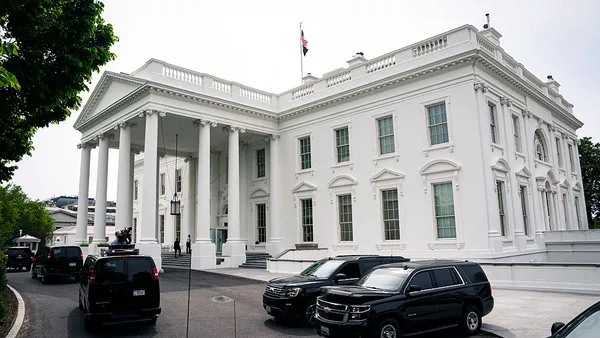The U.S. Supreme Court heard oral arguments Wednesday in FCC v. Consumers' Research — a case in which the future of the federal E-rate program hangs in the balance.
The case hinges on whether Congress and the Federal Communications Commission violated the Constitution when giving power to a private nonprofit company following the enactment of the Telecommunications Act of 1996 to administer the Universal Service Fund, which oversees E-rate.
The FCC argued Wednesday morning that Congress did not give governmental power to Universal Service Administrative Co., the private nonprofit company in question.
"You can't just 'Pass Go,'" said Sarah Harris, the U.S. Department of Justice's acting solicitor general, in arguments. "Congress can't do that."
Via the Telecommunications Act, Congress granted the FCC authority to implement the recommendations of a federal-state joint board on universal service, and to establish a fund to support universal service in underserved rural and urban areas.
Rather than delegating power to private companies like USAC, the FCC solicits and relies on them to provide "private advice." In fact, the FCC's petition said it routinely adjusts USAC proposals that deny discount rates to public libraries and schools.
On the other side, Consumers' Research, a conservative consumer protection nonprofit, argued that "this case is about taxation without representation," and that USAC's funding mechanism taxes citizens in the form of a “Universal Service Fee” on their telecommunication services bills — which it doesn't have the power to do.
All parties and the justices on Wednesday acknowledged that the Universal Service Fund is a widely-used program that schools, children and libraries depend on.
Justice Elena Kagan, in reference to the program’s impact on rural communities in particular, said it provides services that are "essential to education."
A second petitioner, the Schools, Health and Libraries Broadband Coalition which had its case consolidated with the FCC’s case, said the impact of undoing the fund would be "disastrous" — including on schools.
Paul Clement, who argued on behalf of the second petitioner, said undoing the program would be "disastrous" for "all the schools and libraries that benefit from this program."
He pointed out that although not everyone uses the fund, everyone benefits from it. "I might not live in rural Alaska, but its nice to be able to place a call there"
In 2022-24, E-rate funding was distributed to more than 106,000 schools and helped more than 54 million students, according to the FCC. A 2024 survey found that an overwhelming majority — 94% — of 2,355 surveyed E-rate applicants considered its funding "vital" to schools' and libraries' internet access.
Trent McCotter, attorney for Consumers’ Research, contended, however, that the program’s popularity "shouldn't matter" to the merits of the case.
"Members of Congress love handing off taxing to someone else and say: Don't blame me, blame the FCC."
The justices acknowledged that they would have to carefully consider that a decision in the case could overturn precedent and impact programs beyond the Universal Service Fund.
This is not the first time the E-rate program has been on the docket in recent months. In the court’s last term, justices heard Wisconsin Bell, Inc. v. United States ex rel. Heath, which concerned whether funds distributed by companies under E-rate to public schools and libraries are private or government funds.
In February, the court unanimously decided those funds are the latter — a ruling that, in effect, preserved broadband funding.








 Dive Awards
Dive Awards





